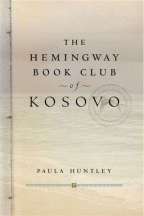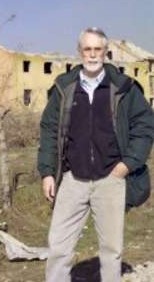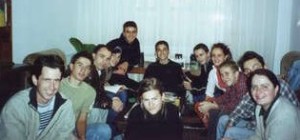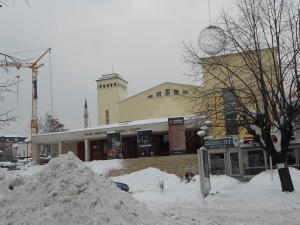March 12, 2012
Our second class moved from Karl Marx’ central claim about capitalism, that the exploitive “bourgeoisie” dominated and suppressed the “proletariat,” to a glance at the impact of that nineteenth-century economic theory on twentieth-century literary criticism, especially the idea that great writers jar readers out of their willful blindness to the hegemonic tyrannies of capitalist culture (Abrams, Glossary, 155-61).

Arthur Miller in 1952, photo by Sam Falk (Source: The New York Times)
Having sketched this theoretical background, I reminded the students that Arthur Miller’s Salesman came to the American stage in 1949, just two decades after the Great Depression, the horrific economic and cultural upheaval that exposed the destructive side of unbridled capitalism and challenged the myth of the American Dream, the idea that hard work always yields personal and economic success; many viewers, therefore, saw Miller’s play as America’s proletarian tragedy. Stressing these last two words, I challenged my students to think for themselves, to decide to what extent the play reflects Marxist ideology, to what extent it challenges the Marxist critique of capitalism, and to what extent it the play qualifies as a tragedy.
Noting Miller’s passionate belief that an ordinary man or woman could qualify as a tragic character, I referred the students to the first topic on their assignment sheet, which provides the classical definition of “tragedy” and asks them to write an essay on the extent to which they agree with the author about Willy’s tragic stature:
Critic M. H. Abrams defines “tragic hero” as a noble character with intelligence and compassion, a good man or woman who commits an error in judgment that harms those he/she loves and, ultimately, leads to his/her exile or death. This “error in judgment”—the Greeks called it “hamartia”—grows from a tragic flaw, usually rooted in pride (hubris). Eventually, when it’s too late, the tragic hero recognizes and accepts his responsibility for the error. Because the hero’s goodness and flaw twine inextricably together, readers and viewers experience “catharsis” in response to the hero’s inevitable fall. This catharsis or purge consists of two emotions: we pity the hero because he meant well; we fear his fallen condition, recognizing that we can make the same kinds of mistakes. Paradoxically, the hero’s crushing defeat, though profoundly sad, uplifts us, causing us to recognize our capacities for loving self-sacrifice as well as for error. What about Willy Loman? Can a failed salesman who complains about his “goddam arch supports” (2329) qualify as a tragic hero? Support your views with close analysis of action from the play, including appropriate quotations.

First edition cover of Miller's Death of a Salesman (Source: Wikipedia)
“Well, what about it?” I asked. “Even though Biff at one point calls his father a ‘prince,’ Miller of course concedes that Willy lacks the aristocratic pedigree of the traditional tragic character—Prince Hamlet, King Lear, Oedipus Rex—but Willy otherwise qualifies, Miller insists, as a great-hearted man whose blunders crush those he loves but who uplifts us with his capacity to love self-sacrificially. How about those of you who journaled on this question? Will you share your thoughts?”
Kadrije quickly volunteered and proceeded to read a full-page entry, complete with quoted key phrases, arguing that Willy deserves our compassion for being “tired to death” but not our respect. Unlike tragic characters, she said, Willy never succeeds, never reaches a pinnacle of achievement, and therefore cannot be said to fall. He also fails to acknowledge, she continued, that his teachings to the boys have been “all wrong” and destructive. Blerta disagreed, saying that both his blunders and his death give him tragic dignity because of the immensity of his love.
Having emphatically praised these candid, thoughtful responses, I asked if anyone else would read his or her preliminary comments of one on the other three topics, which invite papers on Willy’s wife Linda, on models of business men in the play, or on Biff and Happy, the troubled sons of Willy and Linda:
- Willy credits Linda with being his “foundation and support” (2331). Do you agree? Has her love for Willy been constructive? Destructive? Both?
- Training his sons to become businessmen, Willy proclaims that if they are “well liked” they will “never want” (2339). Focusing on Willy, Charley, and Bernard, discuss Willy’s formula for success. Does the play imply another route to success?
- After Biff and Happy desert their father in the restaurant, Linda calls them a “pair of animals” who never loved their father (2384). To what extent do you agree with Linda?

Philip Seymour Hoffman as Willy Loman in Broadway revival of Miller's Salesman, opening 15 March 2012; photo by Brigitte Lacome for New York Magazine (Source: The Economist)
Happily, more enthusiastic responses followed. First, Xhemile read her entry, which supported Kadrije’s view of Willy, condemning particularly his lack of integrity as both husband and father; she then praised Biff, who finally acknowledges the truth about all their failures and tries to save Willy with his sobbing plea to let go of his “phony dream” that the “well liked” succeed. Bierta next read her entry on Linda, conceding that she deeply loves Willy but insisting that her misguided support of Willy’s fictions makes his suicide inevitable, particularly after she refuses to confront him with the nipple he has placed on the gas pipe.
Encouraged by all these responses and the students’ willingness to read aloud, I reiterated my praise and asked them, for the next session, to commit to a topic and come to class with a rough draft. Looks like I’m in for some good reading.






![Faculty of Filologjik_1 feb 2012 Fakulteti i Filologjisë (Faculty [College] of Philology)](https://reflectionsonkosovo.files.wordpress.com/2012/02/faculty-of-filologjik_1-feb-2012.jpg?w=300&h=225)
